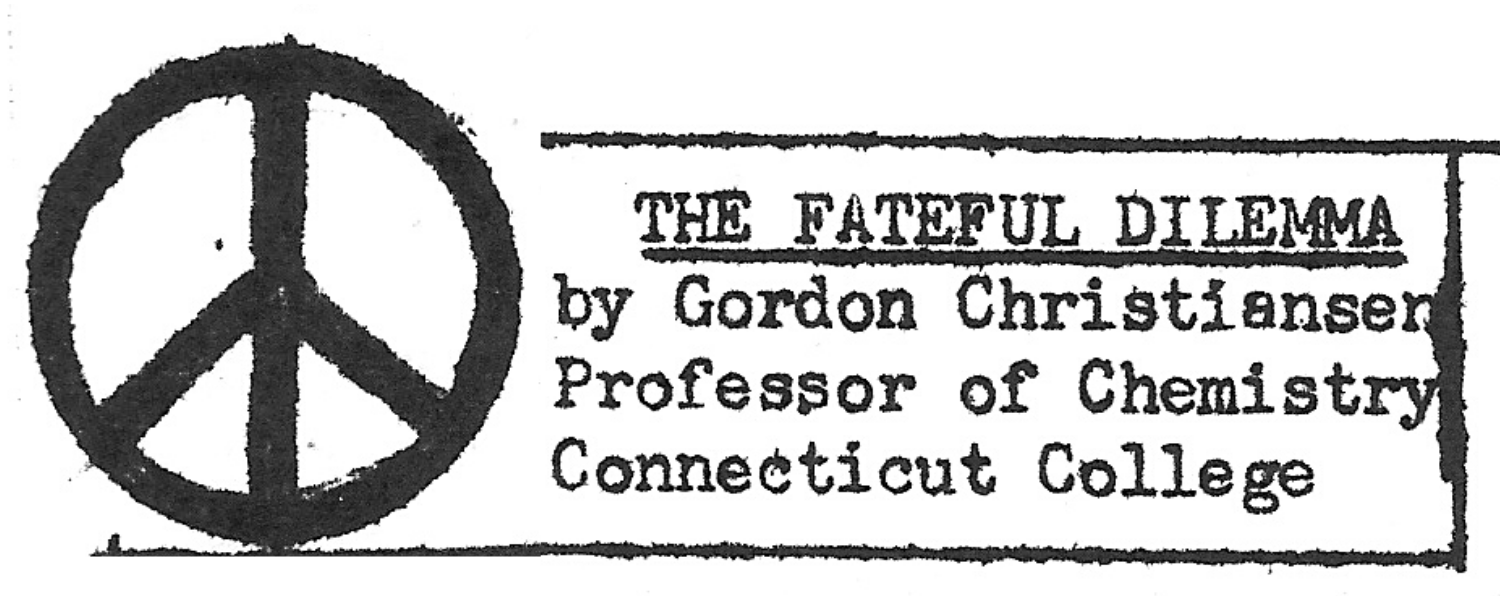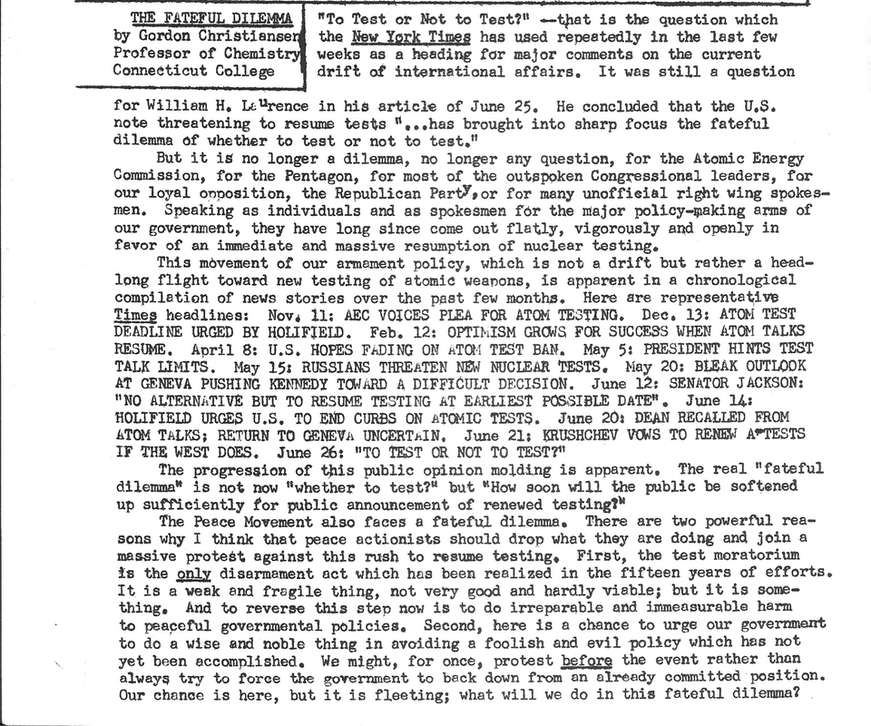“The Fateful Dilemma" by Gordon Christiansen, Professor of Chemistry, Connecticut College (1961)5/26/2022
Through the last few months of 1960 and into the early summer of 1961, US antiwar activists noticed something strange about some of the national news articles regarding the nuclear arms race. Since 1958, both the United States and the Soviet Union had held a moratorium on nuclear weapons testing — the most significant victory for the peace movement up to that point. It was far from perfect, but the compromise had kept tensions between the two countries relatively low until April 1961, when the United States attempted to invade communist Cuba in the infamous Bay of Pigs fiasco. Even before the failed invasion of Cuba, however, national media in the United States had been regularly publishing stories and opinions that made the resumption of weapons testing seem necessary and almost inevitable. Public opinion, it appeared, was being actively shaped into what Noam Chomsky later called “manufactured consent.” Noticing this disturbing trend, one member of the New England Committee for Nonviolent Action (CNVA), vividly described this manipulation of public opinion and what must be done about it in the June, 1961 edition of the New England CNVA newsletter. The author, Gordon Christiansen, was a respected chemistry professor and chair of his department at Connecticut College who had become increasingly involved in the peace movement. While many of the CNVA members had come to the area just a year earlier, Christiansen was already a local resident — giving some extra clout to the CNVA message in eastern Connecticut. Christiansen’s analysis of what he called “public opinion molding” shows a clear and steady escalation of public rhetoric, preemptively justifying the invasion of Cuba and, after suffering the military humiliation at the Bay of Pigs, continuing to justify even more aggressive behavior to save face. While no one could have known it at the time, this progressively escalating chain of events would lead to the Cuban Missile Crisis the next year — the moment when the United States and Soviet Union came closest to fighting an open nuclear war. Today, we are again seeing national media “soften” the public to the idea that the deployment of Russian nuclear weapons may be inevitable, implicitly justifying the use of our own nuclear arsenal. This must not continue, lest we face our own version of the Cuban Missile Crisis — and this time, with less competent, less ideal-driven leaders on either side of the conflict. In 1961, Christiansen called for a massive, national action to protest the expiration of the testing moratorium and to call for greater restrictions to the arms race. And, for once, the movement could make their case before the government had committed to the wrong course. Today, we, too, find ourselves in a world divided by powerful and ideologically opposed superpowers, all inching almost imperceptibly toward a reality in which nuclear weapons are openly used in war. Once we cross that line, there may be no going back; indeed, after the bombs explode and the dust settles, there may not be anything left to go back to. (Click the image below to download the PDF version of the original clipping) —
Take Action The CT Committee for the Prohibition of Nuclear Weapons organizes pro-disarmament demonstrations throughout the year. To participate in these demonstrations against nuclear arms and in support of the UN’s Treaty on the Prohibition of Nuclear Weapons, please get in touch with us on Facebook at facebook.com/voluntownpeacetrust or email us at [email protected]. — Support Us If you like our weekly posts, please consider supporting this project with a one-time or recurring donation. Contributions of all sizes are appreciated. Click this link to learn more about what we do and how you can donate: https://www.mightycause.com/organization/Voluntown-Peace-Trust — Source Christiansen, Gordon. “The Fateful Dilemma.” Polaris Action Bulletin. 29 June 1961 (Bulletin #24), page 1. Comments are closed.
|
AuthorWrite something about yourself. No need to be fancy, just an overview. Archives
March 2023
Categories |


 RSS Feed
RSS Feed